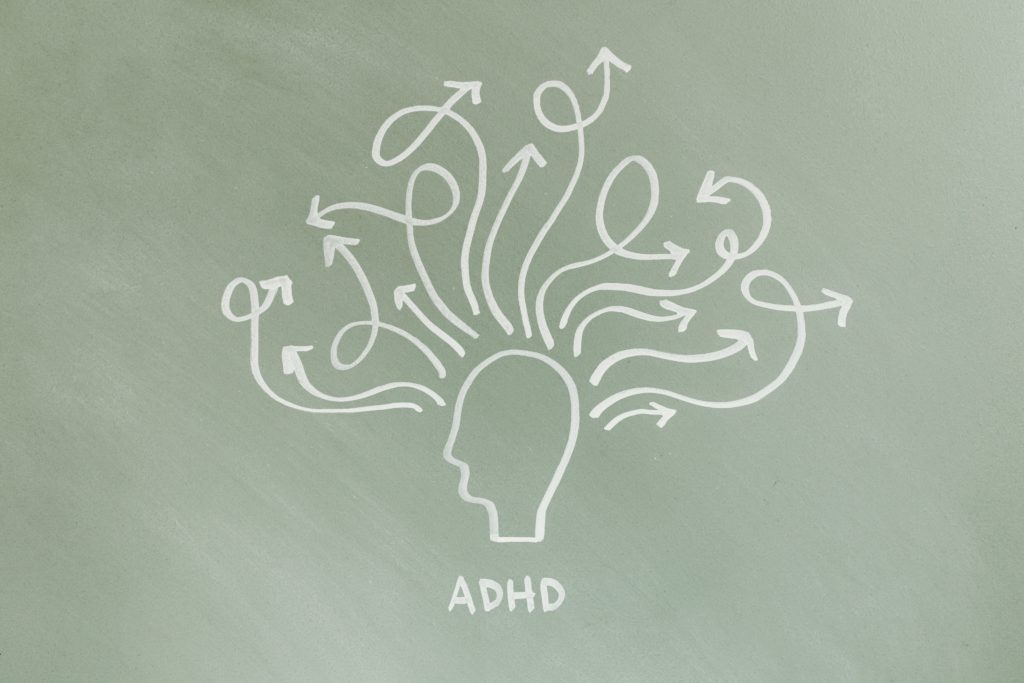Grasp all concepts of Psychiatry in less than 6 hours for NEET PG 2022

NEET PG is one of the essential exams for aspirants who want to pursue their studies in the medical field. It is a medical entrance exam. NEET PG exam allows students to take admission in their desired PG course or MS/MD course as per their interest. The exam allows them to take admission in some of the reputed colleges and universities around the world. In NEET PG, the examination is conducted for 19,953 MD, 10,821 MS, 6,102 government and 1,979 seats for diploma students.
The syllabus of the NEET is categorised into three different parts of the medical field, i.e., Pre-Clinical, Para-Clinical and Clinical Services. These sections are further divided into various sub-sections. The subject-wise distribution, marking pattern, result details, all can be found below.
Subject-wise Distribution of Questions and Sections: NEET PG 2022
The subject-wise distribution of the questions, sections and allocated marks are as follows:
Section A: 50 marks
| Subject | Marks Allocation |
| Section A – Pre-Clinical | |
| Biochemistry | 16 marks |
| Physiology | 17 marks |
| Anatomy | 17 marks |
| Total | 50 marks |
Section B: 100 marks
| Subject | Marks Allocation |
| Section B – Para-Clinical | |
| Microbiology | 20 marks |
| Pharmacology | 20 marks |
| Social and preventive medicine | 25 marks |
| Forensic medicine | 10 marks |
| Pathology | 25 marks |
| Total | 100 marks |
Section C: 150 marks
| Subject | Marks Allocation |
| Section C – Clinical | |
| General Medicine (Dermatology & Venereology & Psychiatry) | 45 marks |
| ENT | 10 marks |
| General Surgery (Orthopedics, Anesthesia, and radiodiagnosis) | 45 marks |
| Obstetrics and Gynecology | 30 marks |
| Pediatrics | 10 marks |
| Ophthalmology | 10 marks |
| Total | 150 marks |
One of the most sought branches of the NEET PG is Psychiatry. It is considered an essential concept and holds high weightage. Students can expect almost 4 to 5 questions of Psychiatry in NEET PG 2022. Psychiatry is a branch that deals with the treatment and study of aberrant behavior, mental illness, and sensory disturbance in a human being. Psychiatry is one of the toughest subjects of the NEET PG for the preparation for Post Graduate Medical Entrance Exams. However, the subject is high scoring if prepared accordingly. Studying Psychiatry can be tedious for students if they don’t follow a proper strategy. Students can expect image-based questions and single-line questions in the NEET PG 2021 examination.
List of Important Topics – NEET PG Psychiatry:
The list of important topics of NEET PG 2022 Psychiatry is as follows:
| Psychiatry Important Topics | |
| ICD 10 and DSM V | Basic terminology in Psychiatry |
| Freudian Theory and Stages | Learning Theories |
| MMSE | Schizoaffective Disorder |
| Mood Disorders | Hypomania |
| Major Depressive Episode | Cognitive Theory |
| Bipolar | OCD |
| PTSD | Somatic Disorders |
| Delirium | Organic Amnesic Syndrome |
| ECT (Electroconvulsive Therapy) | Organic Amnesic Syndrome |
| ADHD (attention deficit hyperactivity disorder) | Piaget Theory |
| Erikson Stages | Defense Mechanisms |
| Neuropsychological Tests | Schizophrenia |
| Antipsychotic Drugs | Mania |
| Dysthymia | Neurotransmitters |
| Depression | Treatment |
| Anxiety Disorders | Dissociative Disorders |
| Neurotransmitters involved in Neurotic Treatment | Phobia Disorder |
| Dementia | Substance Use Disorders |
| Personality Disorder | Ganser Syndrome |
Topics and Subtopics of Psychiatry – NEET PG 2022:
- BASICS – The basics of Psychiatry include mental status examination, levels of insights, and higher mental functions.
- Schizophrenia spectrum and other psychotic disorders – The schizophrenia spectrum of psychiatry include Schneiderian First Rank Syndrome, negative symptoms, side effects of antipsychotics, prognosis, and Epidemiology of Schizophrenia. It further consists of delusional disorder, fregola syndrome (with images), and Capgras.
- Mood Disorder – Mood disorders include atypical depression, cognitive triad, cognitive theory of depression, treatment of the bipolar disorder, post part depression, Lithium, risk factors for suicide, antidepressants and the side effects, suicide, and other mood disorders.
- Neurotic, somatoform, and stress-related disorders – It consists of treatment of OCD, conversion disorder, differential diagnosis of panic disorder, stages of death and dying, PTSD, and criterion of obsessions.
- Addictive and Substance-related disorders – The sub-topics of the concepts include withdrawal symptoms of alcohol, withdrawal symptoms of opioids, the criterion for dependence, Wernicke’s Korsakoff syndrome, varenicline, management of tobacco dependence, and maintenance treatment of opioids.
- Organic mental disorders – The sub-topics consist of Alzheimer’s disease, symptoms of delirium, mini-mental status examination, and neuropathology.
- Personality disorders – It includes borderline personality disorder, personality traits, Type A, B, and D personality, and obsessive-compulsive personality disorder.
- Eating disorder – eating disorders include the difference between bulimia nervosa and anorexia nervosa.
- Sleep disorders – sleep disorders include parasomnias, narcolepsy, and the EEG findings in stages of sleep.
- Child Psychiatry – The sub-topics include the management of ADHD, tic disorder, Tourette’s syndrome, and the clinical diagnosis of autism.
- Sexual disorders – Sexual disorders topics include the treatment of erectile dysfunction, premature ejaculation, diagnosis of erectile dysfunction, and gender identity disorder.
- Psychoanalysis – The sub-topics include dreamwork, abreaction, defense mechanisms in psychiatric disorders, defense mechanisms, and structural and topographical theory of mind.
- Miscellaneous topics – Other miscellaneous topics include cognitive development stages, electroconvulsive therapy, and operant conditioning.
Grasp detailed Concepts of Psychiatry in less than 6 hours– NEET PG
Mental Disorders
Mental disorders are complex in nature such as psychoses and depressive disorders. As per modern studies both these disorders are widely distributed in society and can be found easily. The brain is a complex organ, and the neural system cannot figure it out properly. Mental disorders are dangerous as they have the potential to change the nature, behavior, and sense pattern of the human body. Some people neglect it and leave it untreated that can be fatal. Neurobiological techniques have proved that the situation can be progressed and treated. The symptoms include mood swings, psychosis, and anxiety.
Treatment for mental disorders – The combination of widespread prevalence, pathophysiology, postmodern culture, all can help people suffering from mental disorders. Many effective treatments also exist that can help people with mental disorders, like stress and anxiety. Therapy also results in mental benefits for the individuals. Doctors are required to have a general understanding of mental disorders to help patients on the spot or to guide them to the right doctors, therapists, or psychiatrists.
Pharmacology
Pharmacology is a disorder that is alleviated through drugs. If the drug is known, immediate action can be taken to understand the biochemical abnormality for the disorder. For example, anticholinergic drugs are effective in Parkinson’s disease. However, the symptoms of Parkinson’s disease are caused by dopaminergic transmissions, not by the excess of cholinergic transmissions. Using Psychiatric medicines, progress is made. The medicines are antidepressants that help with the brain mechanisms like emotional processing, and anxiety.
Psychology
Psychology is a study of human behavior, its effects, and the study of abnormal behavior. All these behaviors are associated with mental disorders. Psychology helps to contribute to understanding anxiety disorders. It consists of classic conditioning, operant conditioning, coping mechanisms, and cognitive processes. All these concepts are essential to know mental problems and help in coping with human behavior.
Neuropathology
For over a century, the brain is studied post-mortem. It helps in understanding dementia and organic disorders in the human brain. However, until recently there are no new abnormalities shown in the brain functional psychoses. The modern treatment shows the abnormalities in the brain area and medial temporal lobes of a human brain. It is often found in individuals suffering from schizophrenia.
Ethology
Ethology is another branch of Psychiatry. It is concerned with behavioral disorders. The method of ethology offers quantitative observations of the individual’s behavior.
Sociological Disorders
The clinical observations that show psychiatric disorders are affected by the social environment and its factors. Many disorders are influenced by social pressure and the social environment. The other topics in sociological disorders include the sick role, illness behavior, social role, socioeconomic status, life event, event, social mobility, migration, social institution, and total institution.
Mood Disorders
Mood disorders is a psychiatric disorder and are based on clinical characteristics. It is also classified as presumed aetiology. Mood disorders and illnesses are caused by various factors, such as genes known as endogenous and external stressors known as reactive. Mood disorders include ICD – 10 and DSM – IV. The classification is as follows:
| ICD – 10 | DSM – IV |
| Manic episode | Manic episode |
| Depressive episode Mild Moderate Severe | Major depressive episode |
| Bipolar affective disorder | Bipolar disorders |
| Persistent mood (affective) states | |
| Cyclothymia | Cyclothymia |
| Dysthymia | Dysthymia |
Bipolar disorder
Bipolar disorders are also known as manic depressive disorder or bipolar affective disorder. These are the mood swings between bipolar depression and mania (mood elevation). Bipolar disorders cause serious personal distress and social dysfunction in the human body. It is also known as a physical disorder. Bipolar disorders are not caused by the excessive usage of drugs or medicines. The features of mania include poor judgment, mood, and overactivity. Mania is considered less common as compared to other depressive disorders. The clinical features of the mania include appearance, behavior, elevated mood, libido, speech, sleep, appetite, thinking, insight, and hallucinations.
Schizophrenia
Schizophrenia is categorized as a psychotic symptom, like hallucinations and delusions. Patients suffering from the disease might face functional impairment. In delusion disorders, a patient will not have any symptoms of hallucinations. The common features of the disease include hallucinations, social withdrawal, impaired performance, delusion, and persecution. Organic brain diseases include delirium, dementia, paralysis of the brain.
Anxiety and obsessional disorders
Anxiety disorders are the stress issues and disorders found in a human being. Anxiety disorders are categorized into various divisions, such as anxiety, panic, and phobic disorders. All these divisions have different disabilities and symptoms. These disabilities also require different treatments. Anxiety disorders have two types:
- Generalized anxiety disorder – Phobic anxiety disorder includes social phobia, simple phobia, specific phobia, and agoraphobia.
- Episodic anxiety – Episodic Anxiety includes phobic anxiety disorder, mixed pattern, and panic disorder.
NEET PG 2022 Result:
Candidates can check the result of the NEET PG 2021 on the official website, once it is declared. Candidates will also receive a notification of the announcement of the result. The website is nbe.edu.in. The result will be formatted in a tabular form, stating the AIR rank, Roll no, and the total marks of the candidates. The result will be out of 800 marks per student. Candidates who are selected will be contacted for a counseling session.
We can say that all the concepts of Psychiatry can be brushed upon and learned within 6 hours for NEET PG if you follow a focussed and systematic study approach. You can practice the mock tests of the exam at the DBMCI website to boost your performance. DBMCI is considered a distinguished medical coaching institute of India. You can refer to the DBMCI’s ebooks, live sessions, mock tests, and other study material for the examination.


